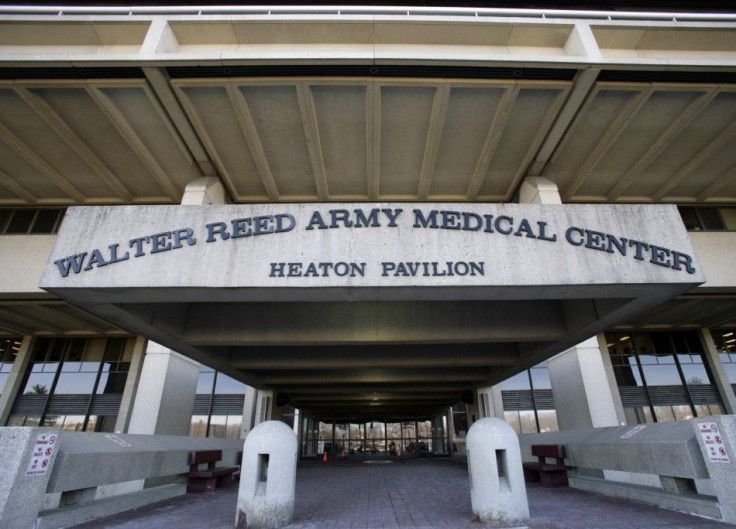Walter Reed Army Medical Center Will Move Hundreds of Injured Soldiers

Walter Reed Army Medical Center, the main hospital for injured soldiers in Iraq and Afghanistan, had a closing ceremony Wednesday. Authorities will move hundreds of patients to hospitals in Maryland and Virginia.
Walter Reed's hospital operations will relocate to the National Naval Medical Center in Bethesda, Md. and Fort Belvoir, Va. next month.
The hospital will transport its patients one by one via ambulance, officials said.
The hospital's 430 outpatients will be moved in cars, hospital spokesman Charles Dasey told the San Francisco Chronicle.
The hospital, which opened its doors in 1909, has been treating wounded soldiers aroused emotional responses in many.
"These doors may close, the address may change, but the name, the legacy and most important, the work and healing will endure," John M. McHugh, secretary of the Army, said in a speech at the ceremony.
Commander of the Army's Northern Regional Medical Maj. Gen. Carla G. Hawley-Bowland told the San Francisco Chronicle that the move is aimed at a reduction in the number of facilities in order better fit patient needs. Treatment has dramatically improved significantly in the past two decades and less inpatient care is required, said Hawley-Bowland. In turn, the hospital lacks necessary outpatient capacity.
The hospital opened its doors in 1909 and has been treating wounded soldiers for many generations.
"These doors may close, the address may change, but the name, the legacy and most important, the work and healing will endure," John M. McHugh, secretary of the Army, said in a speech at the ceremony.
The center suffered an irreversible low to its reputation in 2007, when the Washington Post published articles intended to expose poor living conditions at the hospital. Despite this, its medical care is unprecedented.
© Copyright IBTimes 2025. All rights reserved.





















